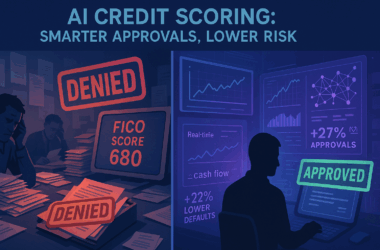Do Instalment Loans Affect Your Credit Score? Let’s see…
The Credit Score is a way of assessing your creditworthiness, which is used by lenders before approving any debt-based product. The credit score is created from your credit report which is compiled by the credit reporting bureaus. In the USA and in the UK, the credit report is compiled by the three major credit reporting bureaus, namely:
These credit bureaus start accumulating your credit history from the moment you turn legally an adult. Every credit-based transaction that you carry out is reported to these bureaus. These transactions may include any new loan or debt, debt repayment, utility bill repayment, repayment on or after time, credit card usage etc.
Not just this but the credit report also notes down any delinquency, bankruptcy and court orders issued against the individual. The credit report is a very detailed document. A credit score is an attempt to condense the detailed credit report into a number that can portray creditworthiness of an individual at a single glance.
FICO scores in the USA are the most commonly used credit scores. The FICO score goes up to 850 which is considered as the best score anyone could possibly have. The FICO score can also be graded. This grading is not universal and lenders may follow their own grading criteria but in general, this grading applies.
- Excellent: 800 to 850
- Very Good: 740 to 79
- Good: 670 to 739
- Fair: 580 to 669
- Poor: 300 to 579
Individuals should aim to keep their credit score above 800 at any time. Why? Simply because having a higher credit score gives you access to better financial products and services and it gives you leverage to negotiate terms and rates with lenders. However, staying in the good category is also okay but this category is too close to the danger zone that lies below it.
Higher credit scores are considered safe whereas lower credit scores are considered risky by lenders. Why? Simply because a lower credit score translates into poor financial discipline and week credit history. Low credit score means that the individual has not been very good in maintaining their creditworthiness, this is seen as a risky sign by lenders.
The credit score nevertheless is your credit report in quantified form. Which means that the credit report is made up of different areas from your credit report. For instance, the below-mentioned breakup of the credit score is commonly available public info.
- Payment history – 35%
- The total amount owed – 30%
- Length of credit history – 15%
- Types of credit – 10%
- New credit – 10%
This shows that the credit score is made up of different areas. By analysing this, one can understand the areas that have the highest impact on the credit score. From this list, it can be seen that the payment history has the highest impact on the credit score. If you simply pay your bills and outstanding dues on time, then you can have a very big impact on your credit score.
The total amount owed stands for 30%. This means that the more debt one has, the worse the credit score will become. One should therefore aim to keep the total amount of debt at any given point at manageable levels.
The length of credit history amounts for almost 15% of the credit score. What this means is that the older your credit history is the better it will be for you. This is why if you have got any old credit cards or old bank accounts that you no longer use then it would not be such a bright idea to get those cards or accounts deactivated. Instead try to get some transactions through those cards and accounts each month, just to keep them active so that they can register a positive impact on your credit report. 15% may not seem too much but bit by bit, it can have a sizable impact on the overall credit score.
The types of credit and new credit together form a 20% contribution to the credit score. This can also be called the “Credit Mix”. This means that it is very important to have diverse debts and loans at any given point. The more diverse your credit mix is, the better it will be for your credit score.
Now that we understand how the credit score is made up and what affects it the most. Let us try to answer the original question:
Do Instalment Loans Affect Your Credit Score?
Well, this depends. Whenever an individual takes a new loan, it has a slightly negative impact on the credit score. If however, you have already got multiple debts then the impact of getting a new instalment loan may be more profound than you were expecting it to be.
Secondly, it is very important to repay the loan on time. If you take out an instalment loan and pay it back on time, then these timely repayments will end up improving your credit score. Which is a good thing in itself, as your credit score can go up if all of the payments are made on time.
It is also very important to take out a loan from a lender that actually reports to all three or any of the three credit bureaus. If the lender does not report to these entities, then taking out the instalment loan will have nil effect on your credit score. It will not be good and it will not be bad, because your credit activity will simply pass under the radar. It must however be kept in mind that lenders who do not report to the credit bureaus, may not be very credible and may be predatory.
As a closing remark, no matter what type of debt you take out to make sure to repay it on time as this is going to have the biggest impact on the credit score. Adopt good personal financial management habits so that you never miss a repayment and try to become debt-free.
















Recent Comments